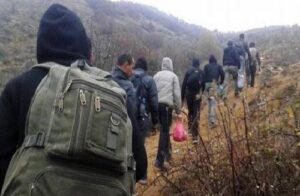.jpg)
KABUL (SW): Suicide of Zahra Khawari, a fifth year student at the Faculty of Veterinary Medicine shocked everyone.
Perhaps because nobody thought that a girl would commit suicide in the capital’s most prestigious university simply because her thesis was rejected.
But slowly the public began to notice it and her suicide became an excuse to criticize and protest the education system in universities, and the cruelty that afflicts students.
Hundreds of students launched protests in Kabul and Bamiyan, and the slogans of protests covered all social network sites.
Khatera Nigari has been another part of this story. Political and social activists and prominent authors condemned the corrupt and abusive system hidden at Kabul University and criticized the university’s administrative branch.
.png)
Shaharzad Akbar, the Country Director of Open Society Institute in Afghanistan, has written on her Facebook page: “The first time I was threatened to with rape; it was at Kabul University, though the threat was indirect. The first time I observed the ethnic, religious, linguistic and economic discrimination obvious and palpable; I was a student. The first time, I fully lost my self-confidence and my hope for future professional career was tarnished; I was a student. After a year and a half I left my education so that I don’t’ lose my self-confidence completely”.
Wahid Omar, Ambassador of Afghanistan in Italy, wrote about his view of the working procedure of the Ministry of Higher Education on his Facebook page as: “In 2006, I decided to take my educational documents for assessment to the Ministry of Higher Education. Two weeks after the committee reviewed my educational documents and called me and asked me to appear in the MoHE to defend my master thesis. Three professors were sitting behind a desk. I have narrated the course of my discussion with the chairman of the committee here without hiding anything: in which field have you studied? I answered: Political Sciences. Define political sciences. If you have read my final thesis, my field is transitional justice. The Professor (with a sarcastic smile): Transitional Justice? (you) mean justice can be transferred? That means, (we) should put justice into a bag and transfer it? (I said) no sir. The transitional justice is a relatively new topic in political science used to tackle war crimes in transitional societies. (Professor) I did not understand. In any case, why didn’t you write this thesis in Farsi or Pashto? Professor, I studied in England. There they do not accept the dissertations in Farsi or Pashto. (Professor) So, translate this thesis, then come to the committee. (I said) Sir, am I allowed daring? (I asked) What is your own field of study? (He replied) I am PhD. (I asked) In which field? (He replied) in Agriculture”.
.png)
Khosrow Mani, a novelist residing in France and studied at Kabul University, wrote: “The Kabul University, as I remember it, was a lethargic place that taught its students merely humiliation and disgrace. Throughout the Faculty of Law where I was a student, it was impossible to meet a professor who could see one meter ahead of his (or her) nose tip. A set of deplorable human beings who put the burdens of their failures and complexities of their lives on the shoulders of their students. In summary, ten years ago, we all could simply do the same thing that Zahra did yesterday”.
But I must also bring Younus Toughyan’s note, the Professor of Farsi Language and Literature at Kabul University, which was posted on his Facebook page: “This is not the first time that an unforgiveable incident happens at Kabul University. There have been professors who assaulted their students and have been continuing to do so. Instead, they have been honored and received high positions. A number of professors receive bribes from their students. For many years, there has been national bigotry, racism based on language and locations. Indeed, I am ashamed that I serve beside the aggressive, rapists, and corrupts and fanatics”.
Exposé of the political activists, civil activists, writers and university professors from what is happening in the campus of the Kabul University highlighted the inertia and the depth of hidden oppression that students suffered. It is unclear how long this process will continue, and it is also not clear what responsibilities the government is going to take.
The media network of Salam Afghanistan asks the citizens to share their experiences with the media with the aim to disseminate information regarding the hidden oppressive network inside the government and private university systems in Afghanistan.
ENDS





